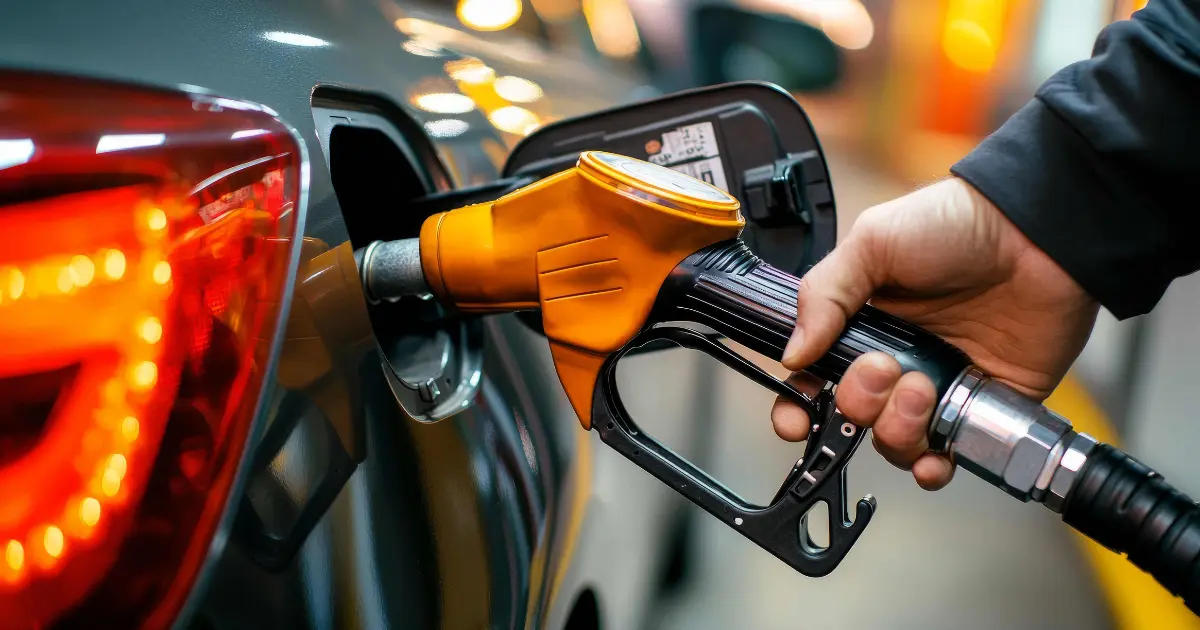4 Ways Fleet Managers Can Streamline Parking and Fuel Costs
Managing a fleet is no walk in the park—especially when parking costs and fuel expenses keep gnawing away at the budget. Between fluctuating fuel prices, tricky urban parking fees, and the ongoing quest for better route planning, it's easy to feel like there's always one more cost just waiting to pop up. In Australia, the situation is particularly challenging, with major cities like Sydney ranking among the world's most expensive for parking. According to a recent NRMA-commissioned report, Sydney's average daily parking costs have increased by 9% in real terms since 2016, placing immense pressure on businesses managing vehicle fleets. And with the pressure to reduce the fleet's environmental footprint, every litre of fuel saved and every parking fee avoided can make a significant difference to your bottom line.
As someone who's worked with dozens of Australian fleet managers over the years, I've seen firsthand how these mounting costs can cripple operational budgets. Whether you're managing a delivery service in Melbourne or a sales team cruising between Brisbane's parking garages and parking stations, finding ways to reduce these expenses isn't just nice—it's necessary. Fortunately, there are smart, practical ways to ease these cost pressures. This article explores four key strategies to help fleet managers in Australia regain control over these unpredictable costs and keep their fleets running smoothly and affordably.
1. Invest in Fuel Management Solutions
Fuel is one of the biggest expenses for any fleet, and with fluctuating prices in the Australian market, it's easy for costs to spiral. The average price of petrol in Australia fluctuated dramatically over the past year, making budgeting a significant challenge for fleet managers. Implementing sophisticated fuel management solutions can help gain control over this volatile expense. These systems consolidate data, making it easy to see where fuel dollars are going while offering real-time alerts for unexpected fuel stops or sudden spikes in usage. As Daniel Battaglia, founder of Parking Made Easy, notes in his book, "Managing a fleet is no walk in the park—especially when parking and fuel costs keep gnawing away at the budget." His observation captures the essence of what fleet managers across Australia face daily.
Fuel cards are an effective way to track fuel purchases while gaining perks like discounts at certain stations. By implementing fuel cards with spending controls, fleet managers can:
- Set spending limits for individual drivers
- Specify which items are eligible for purchase
- Restrict fuel purchases to certain times or locations
- Gain detailed reports on consumption patterns
For those looking to maximize their investment, checking reviews for the best card options is a smart move—NZ Fuel Card Reviews provides insights that help fleet managers choose the right card for savings and efficiency. Additionally, telematics systems can track driving habits like frequent idling, sudden acceleration, or harsh braking—all of which contribute to higher fuel use. With this data, you can provide training or incentives to encourage fuel-efficient driving, lowering consumption and reducing costs over time in the busy parking lots and car parks of Australian cities.

2. Optimize Routing and Scheduling
For fleet managers across Australia, managing parking and fuel costs can quickly spiral if routes aren't carefully planned. With Sydney now ranking as "one of the world's most expensive cities for parking with fees far outstripping comparable US cities and other Australian state capitals," according to the NRMA's "Parkin' Mad" report, efficient routing has never been more critical. The report reveals that Sydney's average daily parking rate is equivalent to US$51—more than double that of cities like Seattle (US$23) and significantly higher than Brisbane and Melbourne rates of US$38 and US$39 respectively. These skyrocketing costs make strategic route planning essential for Australia's fleet managers.
Grouping deliveries by neighbourhood can cut down on mileage and keep drivers out of high-cost parking areas in the CBD. Many Australian fleet managers find route optimization software helpful, as it adjusts real-time for factors like traffic, accidents, or sudden weather changes. For smaller fleets operating in regional areas, a mix of free mapping tools and manual scheduling might be enough, but larger operations in metropolitan areas often benefit from more advanced solutions that reduce idling and track driver efficiency. These tools are particularly valuable when navigating the congested streets of Sydney, Melbourne and Brisbane, where studies indicate that up to 30% of urban traffic stems from vehicles circling as drivers search for available parking spaces.
3. Leverage Technology for Parking Solutions
Parking costs can be a major expense for fleet managers in Australia, especially in urban areas with limited parking spaces and parking spots. Recent research from Business Sydney found that available parking in Sydney's CBD has fallen from a ratio of 0.21 spaces per employee in 2014 to just 0.14 spaces in 2023, making it increasingly difficult and expensive to find suitable parking. Thankfully, technology offers several practical ways to better manage these challenges. Mobile apps that allow drivers to reserve parking spaces in advance can save time and avoid the extra costs of last-minute or premium parking. Many parking apps even offer discounted rates for booking ahead, which can be especially useful for fleet vehicles frequently operating in busy city centers.
GPS-enabled parking solutions can guide drivers to the nearest available spots, cutting down on time spent searching and idling. According to research from CFOtech Australia, this technology is becoming increasingly important as studies indicate that up to 30% of urban traffic stems from vehicles circling as drivers search for available parking. Some systems integrate directly with fleet management software, allowing managers to monitor where each vehicle is parked and avoid costly delays from prolonged searches. For fleets with designated or secured parking, digital parking management systems make tracking occupancy, assigning spaces, and controlling access easy. These systems reduce the risk of unauthorized parking and help managers maximize limited space by organizing vehicle placements effectively.

4. Improve Driver Training and Incentives
Effective training and incentives encourage fuel-efficient driving and foster habits that reduce parking expenses. In Australia's competitive logistics sector, driver behavior can make or break your fleet's efficiency. Educating drivers on fuel-saving habits—like smooth acceleration, steady speeds, and minimizing idling—can significantly reduce fuel consumption. For example, training drivers to use cruise control on highways, avoid harsh braking, and switch off the engine during prolonged stops can make a measurable difference in fuel costs, especially important with Australia's fuel prices being among the most volatile in the developed world.
Training on parking strategies can also go a long way in Australian cities where parking is at a premium. Drivers can be trained to identify cost-effective parking areas and avoid high-fee zones when possible. Additionally, teaching drivers about parking restrictions in different areas across Australian cities can help them avoid fines or penalties. In Western Sydney CBDs, for example, the NRMA's "Parkin' Mad" report noted critical parking shortages, with Parramatta CBD losing about 2,000 parking spaces in multi-storey car parks over five years. Knowing these local challenges can help drivers better navigate difficult parking situations.
The Future of Fleet Parking in Australia
Australia is seeing rapid innovation in parking technology that fleet managers should be aware of. The automated parking system market is growing rapidly worldwide, expected to reach $4.96 billion by 2029 at a compound annual growth rate of 17.2%, according to a recent market report. These technologies are increasingly relevant for Australian fleet managers as urban centers continue to densify. In response to parking challenges, the South Australian government recently released the Planning, Development and Infrastructure (Vehicle Parking) Amendment Bill 2025 for consultation, which aims to establish minimum off-street parking requirements and larger minimum parking space dimensions to accommodate modern vehicles.
For forward-thinking fleet managers, these developments present both challenges and opportunities. AI-powered parking enforcement solutions are becoming more common in Australian cities, using vehicle geolocation, number plate recognition, and other technologies to monitor parking compliance. While this means stricter enforcement, it also enables more efficient parking management systems that can help fleets find available spaces more easily. Several local governments have implemented AI-driven parking technologies to provide real-time data on space availability, reducing congestion and making it easier for drivers to navigate busy areas. By staying ahead of these technological trends, fleet managers can position their operations for greater efficiency in the increasingly complex urban parking landscape.

Final Thoughts
Managing parking and fuel expenses doesn't have to be an endless challenge for Australian fleet managers. By combining smart strategies with the right tools, you can bring lasting improvements to daily operations and protect your bottom line. The four approaches we've discussed—investing in fuel management solutions, optimizing routing and scheduling, leveraging technology for parking solutions, and improving driver training and incentives—provide a comprehensive framework for tackling these costs head-on. With Sydney's parking costs increasing 9% since 2016 while disposable income has fallen 13%, according to the NRMA, these efficiency measures aren't just nice to have—they're essential for fleet sustainability.
Now is the time to take that first step toward a leaner, more streamlined fleet. Start by evaluating which of these strategies would deliver the quickest wins for your specific operation. Perhaps it's implementing a fuel card system with spending controls, or maybe it's investing in parking reservation apps for drivers frequently navigating the CBDs of major Australian cities. Whatever your starting point, Parking Made Easy can help you find affordable and convenient parking solutions tailored to your fleet's needs. Sign up for free today and join thousands of Australian businesses already saving on their parking costs while improving operational efficiency.
**Written by Daniel Battaglia:** As the author of Parking Made Easy: Making Life Easier is dedicated to making parking easier and more affordable at ParkingMadeEasy.com.au with Generative AI. With a background in business focusing on process improvement and parking solutions, Daniel has dedicated his career to helping drivers find parking. He understands the frustrations of parking and is committed to providing practical solutions. If you have any questions about renting a car parking space, feel free to contact Daniel at daniel@parkingmadeeasy.com.au.






